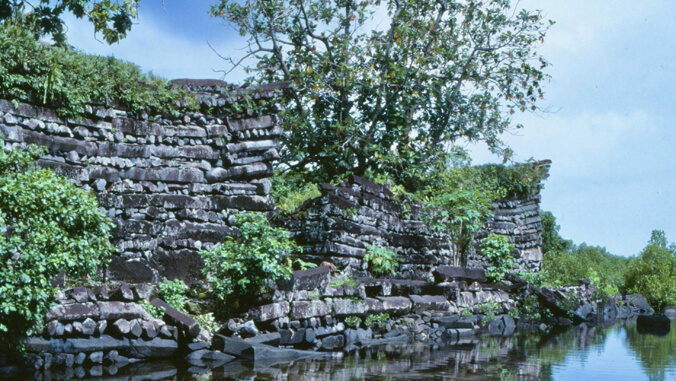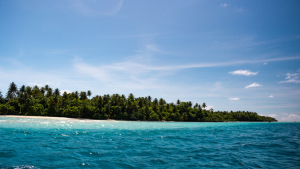
Ancient DNA (aDNA) reveals five streams of migration into Micronesia and matrilocality (patterns of marriage in which the groom resides with the bride’s parents) in early Pacific seafarers. Those new insights, revealed in a June 30 article in Science, were gleaned from research involving four co-authors with University of Hawaiʻi at Mānoa ties: Anthropology Professor Emeritus Michael Pietrusewsky; his former students Rona Michi Ikehara-Quebral and Michele Toomay Douglas; and Affiliate Graduate Faculty J. Stephen Athens.

Prior to this study, the inhabiting of this vast region had been a mystery. “I am so proud that we have contributed to a better understanding of the bioarchaeology and archaeology of Micronesia, including the Mariana Islands and Pohnpei, the Pacific and beyond,” said Pietrusewsky.
The work reveals five previously undocumented migrations into Micronesia, and suggests that approximately 3,500 to 3,200 years ago early inhabitants of Remote Oceania, including Guam and the Northern Mariana Islands, had matrilocal population structures where migrants joining new communities were almost always men. The practice is different from patrilocal societies where women are the ones to leave their own community. Patrilocal residence is the most typical pattern found in modern human cultures worldwide.
The five migrations detected included:
- Three from East Asia.
- One from Polynesia.
- One from the northern fringes of mainland New Guinea.
The results come from a genome-wide analysis on 164 ancient individuals from 2,800 to 300 years ago, as well as 112 modern individuals.
“An interesting finding was that, unlike the pre-contact and modern people of Central Micronesia, the present-day Indigenous people of the Mariana Islands derive nearly all their pre-European-contact ancestry from two of the East-Asian-associated migrations—making this one of the few places in Remote Oceania without Papuan ancestry,” said Pietrusewsky.
The article was published by a team of researchers co-led by Harvard geneticists David Reich and Yue-Chen Liu; Ron Pinhasi at the University of Vienna; and Rosalind Hunter-Anderson, an independent researcher working in Albuquerque, New Mexico. Athens, Ikehara-Quebral and Douglas are affiliated with International Archaeological Research Institute, Inc., with offices in Honolulu and Guam.
Future research will hopefully involve modern and aDNA from other Pacific island communities that have an interest in learning more about biological origins, family structure and social customs of their ancestors.
The Department of Anthropology is housed in UH Mānoa’s College of Social Sciences.
[Portions of this news release were adapted from a news story by Juan Siliezar/Harvard.]
